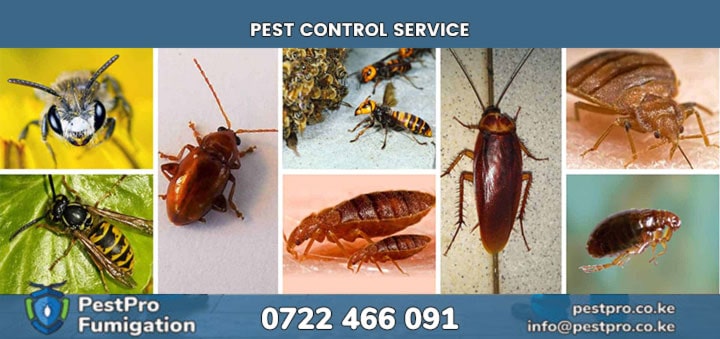Child-Safe Pest Control Methods for Nairobi Families
Pests like cockroaches, mosquitoes, ants, and rodents can be a persistent challenge for families, especially in homes with young children. Ensuring a pest-free environment while prioritizing child safety requires thoughtful, non-toxic, and eco-friendly solutions. This article explores effective, child-safe pest control methods tailored for families, focusing on natural remedies, preventive measures, and safe professional services. These strategies help maintain a healthy home environment without exposing children to harmful chemicals.
Understanding Common Household Pests
Households often deal with pests such as mosquitoes, which can transmit diseases like malaria, ants that invade kitchens, cockroaches that spread bacteria, and rodents that damage property. Identifying the type of pest is the first step in choosing a safe control method. For instance, mosquitoes thrive in stagnant water, while ants are attracted to food residues. Understanding pest behavior allows families to target their efforts effectively.
Natural solutions are ideal for child-safe pest control because they avoid synthetic chemicals. Essential oils, diatomaceous earth, and traps can deter pests without posing risks to children who may touch surfaces or ingest residues.
"Mosquitoes are responsible for over 700,000 deaths annually due to diseases like malaria, making child-safe mosquito control critical in tropical regions." – World Health Organization
Natural Pest Repellents for Safe Homes
Natural repellents are a cornerstone of child-safe pest control. Essential oils like citronella, eucalyptus, and lavender are highly effective against mosquitoes and ants. Mix 10-15 drops of essential oil with water in a spray bottle and apply it to entry points, window sills, or mosquito-prone areas. These oils are non-toxic and safe for homes with children, provided they are diluted properly.
Diatomaceous earth, a powder made from fossilized algae, is another safe option. Sprinkling food-grade diatomaceous earth in areas where ants or cockroaches are common dehydrates and eliminates pests without harming children or pets. Ensure the powder is placed in areas inaccessible to curious hands.
For rodents, peppermint oil-soaked cotton balls can act as a deterrent. Place them in corners or near entry points to discourage mice from entering. These natural methods are affordable, widely available, and safe when used correctly.
"Essential oils like peppermint and citronella can reduce pest activity by up to 80% in treated areas when applied consistently." – Journal of Pest Management Science
Preventive Measures to Keep Pests at Bay
Prevention is the most effective way to maintain a pest-free home. Start by sealing entry points such as cracks in walls, gaps under doors, and open vents. Installing mesh screens on windows and doors can block mosquitoes and flies while allowing ventilation.
Maintaining cleanliness is crucial. Regularly clean kitchens, dispose of garbage promptly, and store food in airtight containers to deter ants and cockroaches. Eliminate standing water in flowerpots, gutters, or buckets to prevent mosquito breeding. For families with children, teaching kids to clean up spills and avoid leaving food out can reduce pest attraction.
Landscaping also plays a role. Trim bushes and clear debris around the home to reduce hiding spots for rodents and insects. Planting pest-repellent herbs like basil, mint, or lemongrass near entryways can further discourage pests.
"Eliminating standing water can reduce mosquito breeding sites by 90%, significantly lowering the risk of malaria in households." – Centers for Disease Control and Prevention
Safe Traps and Baits for Pest Control
Traps and baits can be effective when designed with child safety in mind. Sticky traps for cockroaches and ants are non-toxic and can be placed in cabinets or corners out of children’s reach. For rodents, snap traps or catch-and-release traps are safer alternatives to poison baits, which pose significant risks to children.
When using traps, ensure they are placed in areas inaccessible to children, such as behind appliances or inside locked cabinets. Regularly check and empty traps to maintain their effectiveness. Avoid chemical baits, as they can be mistaken for food by young children.
"Non-toxic sticky traps can capture up to 70% of crawling insects in high-traffic areas within 24 hours." – Pest Control Technology Magazine
Choosing Child-Safe Professional Pest Control Services
For severe infestations, professional pest control may be necessary. When selecting a service, prioritize companies that use Integrated Pest Management (IPM). IPM focuses on eco-friendly methods, such as biological controls and minimal chemical use, to manage pests safely.
Ask providers about the products they use and ensure they are certified as child-safe. Reputable companies will offer low-toxicity options, such as botanical insecticides or gel baits applied in targeted areas. Schedule treatments when children are not home, and ensure proper ventilation afterward to minimize exposure.
Research local pest control providers with a track record of safe practices. Reading reviews and asking for recommendations from other families can help identify trustworthy services.
"Integrated Pest Management reduces pesticide use by up to 50% compared to traditional methods, making it safer for homes with children." – Environmental Protection Agency
Educating Children About Pest Control Safety
Involving children in pest prevention fosters awareness and responsibility. Teach kids to recognize signs of pests, such as ant trails or rodent droppings, and encourage them to report these to adults. Explain the importance of not touching traps or pest control products.
Create a fun, educational routine, like a weekly “pest patrol” where children help check for spills or open food containers. This engages them in maintaining a pest-free home while reinforcing safe habits. Always store pest control products, even natural ones, in locked cabinets or high shelves.
"Engaging children in household chores like cleaning can reduce pest attractants by 60%, fostering a safer home environment." – National Parenting Center
By combining natural repellents, preventive measures, safe traps, and professional services when needed, families can effectively manage pests without compromising child safety. These methods are practical, eco-friendly, and tailored to create a healthy home environment. Implementing these strategies ensures peace of mind, allowing families to focus on creating safe and happy spaces for their children.
More pest Control Services
PestPro Facebook Page
Medium
